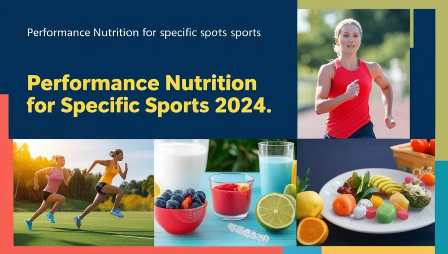“Powerful Benefits of Genetic Fitness and Personalization” is one of these intriguing and cutting-edge concepts. This theory claims that your genes have a big impact on your physical and mental health.
This article discusses biological fitness and customization’s meaning, relevance, and benefits, as well as how it can improve your diet and exercise routine.
What are biological fitness and personalization?
Table of Contents
ToggleThe phrase “biological fitness and personalization” refers to a method of tailoring exercise and eating regimes to each individual by examining their genetic makeup.
We utilize your genetic information to provide the finest diet and exercise plans for your specific requirements.
Center for Biological Fitness and Personalization.
To appreciate this strategy, we must first understand the Genetic Fitness and Personalization Center’s capabilities. These clinics do genetic testing and then create a personalized regimen to enhance your health and fitness.
It creates a tailored exercise and health regimen based on your unique genetic makeup, metabolic rate, and other biological characteristics.
Personalization and Genetic Fitness:
An ApproachThis method relies heavily on the genetic fitness and customization model. This technique considers your genetic makeup to give a tailored plan for physical exercise and good nutrition.
It examines many criteria, including your general health, fat proportion, and muscle mass.
Personalization and Fitness Based on Gene.
This strategy, which is based on your DNA, customizes a program to help you achieve your fitness objectives.
If you have a genetic propensity for muscle mass, your fitness program will prioritize strength training.
Check out the Personalization and Genetic Fitness Kit.Use a Genetic Fitness and Personalization Kit to collect and test DNA samples.
This application can create a diet and exercise regimen for you based on your genetic makeup.
The advantages of genetic fitness and customization are enormous.
The most major benefit of this strategy is that it customizes the workout program to your unique needs and genetic makeup, resulting in better health and fitness.
This provides workout advantages that are both safer and more effective.
For optimal nutrition, we develop a gene-based nutrition plan that considers your metabolic and dietary needs.
As a result, your health will improve, and you will obtain the appropriate quantity of nutrients.
Personalization and genetic fitness validation
Exercises for Genetic Fitness and Customization:
As part of the genetic fitness and customization exercise, your genes are used to develop a fitness program.
Genes that suggest a tendency to powerful muscles recommend strength training and weightlifting.
Those with genes indicating a greater degree of aerobic fitness, on the other hand, will prioritize cardiovascular workouts.
This method enables you to develop a tailored food plan based on your genetic makeup.
For example, if you know from your genes that your body stores fat quickly, you may modify your diet to limit the amount of fat you ingest.
Personalization and Research into Biological Fitness
A substantial amount of research in this field suggests that fitness and genetic customization may improve health and fitness.
These articles cover the process of using genetic information to develop personalized fitness and nutrition plans, as well as how these programs may have a practical impact.
A study of biological fitness and personalization techniques
Genetic fitness and customization diagrams, together with current research in this field, serve to simplify the process of implementing gene-based plans.
These diagrams depict the process of converting your genetic information into personalized diets and activity plans.
A Comprehensive Guide to Genetic Fitness and Personalization:
1. What are the terms biometric customization and biological fitness?
Biological fitness and personalization is a strategy for developing exercise and nutrition plans based on a person’s unique genetic makeup.
We use your genetic makeup to establish the best diet and exercise plan for your individual requirements.
2. How do you utilize a genetic fitness and customization center?
These facilities analyze your genetic data, including your gene structure and metabolism, to create a specific approach for your health and fitness. They help you adapt your workout and food routines based on your DNA profile.
Finally, present a model that considers genetic fitness and customization. After analyzing your genetic data, the genetic fitness and customization model may tailor a diet and exercise regimen to your body specifically. This covers variables such as fat percentage and muscle mass.
3. How can gene-based techniques promote fitness and customization?
These strategies include creating personalized training routines based on your genetic predispositions. If your genes indicate a tendency to gain muscle mass, your program will focus on strength training.What does the Genetic Fitness and Personalization Kit include?
4. Use the DNA Fitness and Personalization Kit to collect and analyze your DNA samples.
With the precise information it provides, you can create an activity and diet regimen tailored to your DNA profile.
5 How may genetic fitness and customization benefit you?
The primary benefits include personalized fitness plans suited to your individual genetic makeup and better food habits. With this strategy, you may be certain that your dietary habits and exercise routine are specifically designed to benefit your health.
6. Do you have any examples of genetic fitness or personalization?
Of course. People with genes that favor aerobic aptitude may emphasize cardio activities, while those with genes that indicate a proclivity for strong muscles may focus on strength training. A person with high fat storage genes will also adopt a low-fat diet.
7. What are the most recent findings in the fields of personalized medicine and biological fitness?
Recent academic research has shown that fitness and genetic customization may significantly improve health and fitness outcomes. Scientific research supports the usefulness of utilizing genetic data to tailor nutrition and exercise plans.
8. How do we investigate genetic fitness and personalization?
Genetic data analysis and diagram construction are common research components that demonstrate how this information translates into individualized diet and exercise plans. These graphics make it simpler to grasp how to use gene-based approaches.
9. What is the first step towards implementing genetic fitness and personalization?
Start by using a genetic testing kit or seeking assistance from a genetic fitness and customization facility. According to the findings, you may receive a personalized plan for improving your health through exercise and food.
In short, “biological fitness and personalization” is a highly effective approach that customizes exercise and health routines based on your genetic makeup. This treatment may allow you to achieve your fitness objectives in a safer and more effective manner.
Biological fitness and customization centers, kits, and procedures make this operation easier and more precise to complete. This cutting-edge technology can help you achieve your health and exercise objectives more accurately and effectively. This technique might be a beneficial starting point if you want to adjust your diet and exercise habits to your genes.

